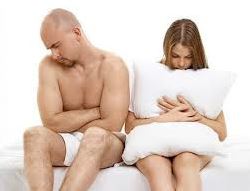If you are not feeling as lustful or loving as you used to, perhaps your libido could use a boost? It’s true as you age the level of testosterone and HGH in the body diminishes and this can result in a decrease in your libido. Testosterone has the biggest influence on how much sex men want and whether you have success acting on those desires and HGH also plays a key role.
HGH and the Increase in Your Sex Drive
 One of the key roles that HGH plays is that it assists in keeping the cells strong and active. This includes heart cells, and the heart’s vitality so that it is able to pump more blood back through the body – this in turns aids in improving the sexual organs’ function. In addition a man’s libido is increased and he can sustain an arousal for a longer time.
One of the key roles that HGH plays is that it assists in keeping the cells strong and active. This includes heart cells, and the heart’s vitality so that it is able to pump more blood back through the body – this in turns aids in improving the sexual organs’ function. In addition a man’s libido is increased and he can sustain an arousal for a longer time.
Human growth hormone progresses the composition of the body, increase your energy, and help you to have a healthier, more productive, and better sex life. HGH has can improve psychological balance and mood. An HGH supplements such as Genf20 Plus can improve sexual performance, by returning levels of HGH and testosterone to younger years. For more info on Genf20 Plus go to this link!
Testosterone and the Increase in Your Sex Drive
Testosterone is the hormone that plays the biggest role on how much sex a man wants and whether or not a man can act on his desires. Its role is even bigger than that. According to a number of studies, testosterone can also strengthen your muscles, build stronger bones, and boost your brainpower.
Testosterone levels decline in men and by the age of 70 it will have dropped a whopping 70%. While a testosterone drop won’t always mean a loss of performance or desire, but it could. 5% of men, and almost 20% after the age of 70, suffer from low levels of testosterone, which leads to erectile dysfunction, low libido, loss of muscle strength, decrease in sperm production, loss of bone mass, and fatigue. Sometimes, testosterone replacement therapy is prescribed to reduce the symptoms of low testosterone. This can be in the form of pellets, injections, gels, and/or patches.
Regardless of the occurrence of other androgens scientists think testosterone is the key to sex drive. In your late teens your testosterone levels peak and then begin to gradually decrease over time. By the time you reach 60 years of age or earlier, the majority of men begin to see a decline in their sex drive and sexual abilities. For example, it takes a longer time to have an erect penis and erections aren’t as firm. It can also take longer to orgasm and to ejaculate. By this age erectile dysfunction is actually common.
A study in 2012 learned that the decline of testosterone in men is likely more a result of health and behavior changes than it is age. According to Gary Wittert, MD, Professor of Medicine at the University of Adelaide and co-author to the study, “Many think that declines in testosterone levels are an expected part of the aging, but this isn’t true.”
In a National Health and Medical Research Council of Australia study, the testosterone was measured and analyzed in over 1,500 men at two visits to the clinic, 5-years apart. All of the samples of blood testosterone were tested at the same time at every point of time. 1,382 men were included in the data analysis after men who had abnormal lab values, were on medications, and/or had a medical condition that would affect hormones were excluded. The participants were between the ages of 35 to 80 years, with a mean age of 54.
They learned that some factors were connected to lower testosterone levels after 5-years than at the start of the study. Thos who were obese, were depressed, or had stopped smoking where more likely to see a decline in their testosterone levels. Unmarried men also had more of a testosterone loss than married men did. Being active sexually increases testosterone and married men tend to have more of a regular sex life.
Generation T
One study that was conducted over a 17-year period saw testosterone levels in men falling. However, why they were falling was unclear as health factors and age didn’t seem to apply here.
Thomas G. Travison, Ph.D., of the New England Research Institutes, says, “Male serum testosterone levels appear to vary by generation, even after age is taken into account.”In another 1988 study, men 50+ years old had testosterone levels that were higher than those of men of the same age in 1996. This would indicate that there are factors that can contribute to the testosterone declines seen that are not related to age.”
Increasing Testosterone Levels
If you increase your testosterone levels, either through direct testosterone treatments, or through GH supplements/injections that will increase GH production, as well as increase testosterone levels, you can enjoy returns to your earlier degree of sexual performance.
If you are struggling with a reduction in your libido, trouble with your erections, or other sexual health issues, talk to your doctor about how to raise your testosterone levels.
*Individual results may vary!
